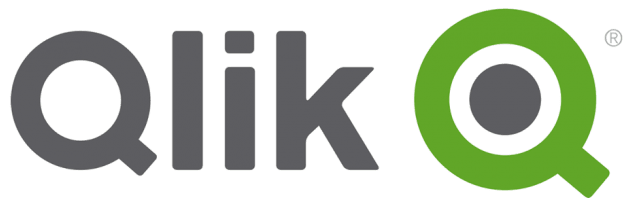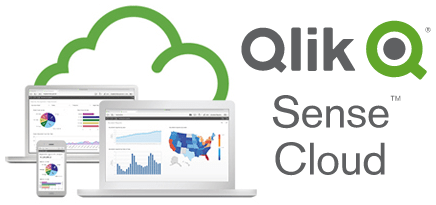“No matter how big or small your business is or how competitive the industry is, choosing the right analytical tool is essential for the company’s success and vitality. It’s all about data nowadays”, says Denys Smakovskyi, Founder & CEO at DataLabs.
For quite some time, it’s been common knowledge that information can be used as an asset. However, recently organizations began considering information as a means of getting ahead of the game. With the growing trend of digital transformation, data and analytics naturally turn into strategic priorities that are crucial for accelerating digitization.
“This is why business intelligence (BI) is on everyone’s lips”, continues Denys. “It guarantees your business can access the cleanest and most comprehensible data anytime, anywhere. But most importantly, you can transfer such data to the customers enabling them to reach optimal decisions fast.”
These days there are so many BI tools, it may be disorienting to choose the one that suits your needs. Fortunately, Gartner’s Magic Quadrant evaluates trends in BI market as well as strength and weaknesses of its vendors each year so that you can choose your tool wisely.
We asked Denys Smakovskyi to share his knowledge about Qlik , one of the leaders in the quadrant for 9 consecutive years.
What, in your opinion, makes Qlik a leader in the quadrant for almost a decade?
 It’s rather simple. Their stated mission is to create a data-literate world where people can use data to make meaningful discoveries that bring about actual changes. So, they continuously put in maximum effort to produce solutions that are user-friendly and exploration driven. They’re always looking for innovative ways to deal with business challenges.
It’s rather simple. Their stated mission is to create a data-literate world where people can use data to make meaningful discoveries that bring about actual changes. So, they continuously put in maximum effort to produce solutions that are user-friendly and exploration driven. They’re always looking for innovative ways to deal with business challenges.
Plus, they allow their customers to choose whether they want to install Qlik tools on-premises or in the cloud. This kind of freedom is what draws people in.
How do these environments compare? Does the cloud-based environment have an advantage over the on-premises one?
Both options have their advantages. Qlik Sense in the cloud is more flexible. It allows users to store and manage their applications without the need to worry about the maintenance of the infrastructure or the on-premises equipment. You only pay a provider for the resources you use. It’s cost and time effective for small and medium companies, which is the key to improving business agility and scalability.
On the other hand, customers have Qlik Sense and QlikView on-premises implementation, deploying resources in-house and within their IT-infrastructure. As a result, the enterprise gets full control of their data. It’s an option for medium and large businesses, and those who take security very seriously. Additionally, it allows advanced customization of your dashboards.
Speaking of dashboards: is it possible to share them with other people in Qlik Sense in the cloud?
Businesses can use Qlik Sense Cloud solution which is accessible through a web client on any device. Users can upload all the necessary information via a simple drag & drop interface, create applications and interactive dashboards, and share them with their colleagues. Furthermore, they can easily embed interactive dashboards either into a website or within any app.
Qlik introduced Qlik Sense Cloud licenses for businesses of all sizes that offer more storage, larger app sizes, and wider sharing, but Qlik Sense Cloud Basic is a freemium service. You just have to log in or register, if you don’t have a Qlik account, and start working right away.
Can business users participate in data preparation as well?
Up until recently, data consolidation and preparation were way over non-tech savvy user’s head. The process required engineers and data analysts’ skills to organize data for business users. It still holds true for QlikView where in order to manipulate data, one should know how to work with scripts.
On the other hand, there is Qlik Sense where advanced data preparation is also possible, but business users have a say in the matter as well. In contrast to QlikView, Qlik Sense is a visualization-driven tool used for creating powerful dashboards. And it uses the same visual approach for data preparation with data profiling features to load data sets.
Qlik has something that other BI tools don’t, namely the Associative engine that keeps all data at hand no matter what dimensions of data the user explores. That’s why business users can make the most out of available to them functions collecting, shaping and cleansing their data. Qlik’s considerably simplifies these processes and makes data blending more flexible and intuitive to boot.
As a result, making actionable insights and reaching the right decisions becomes easier and, above all, more effective.
To wrap it up, what, in your opinion, lies ahead for Qlik? Will they still be a Gartner Quadrant’s leader ten years from now?
I can’t predict that far ahead, but I think if they stay true to their mission, it’s quite possible. What makes Qlik so successful is their drive to improve and create more possibilities for business users to take full advantage of their data.
They started with creating QlikView, which evolved into an efficient reporting solution, and followed through with powerful dashboarding solution Qlik Sense as well as many other products. Their great input into the BI industry is indisputable, and it’s exciting to look forward to what they’ll introduce next.